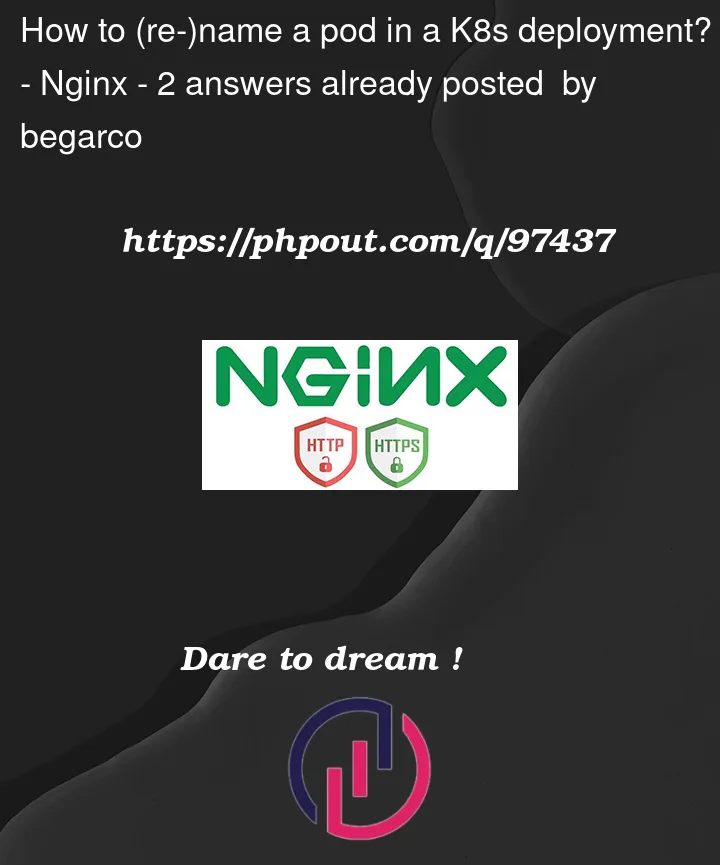I want to deploy two containers in a pod through a deployment. But I want the pod to have exactly the name yoda. But in my case, a random string is always append after yoda like that yoda-f8bcb7bf4-khml6. Is it possible to force the pod name? I try the following but I did not get what I expected.
apiVersion: apps/v1
kind: Deployment
metadata:
creationTimestamp: null
labels:
app: yoda
name: yoda
spec:
replicas: 1
selector:
matchLabels:
app: yoda
strategy: {}
template:
metadata:
creationTimestamp: null
name: yoda
labels:
app: yoda
spec:
containers:
- image: busybox
name: anakin
resources: {}
- image: nginx
name: obiwan
resources: {}
status: {}
Regards,
Benoît




2
Answers
This may not be the answer you expect but with Kubernetes pods should not be seen as pets, i. e. they should not receive a lot of attention but considered as highly replaceable. The name generation is part of this consideration among others to avoid conflicts.
Almost all ways of Kubernetes involve a kind of decoupling, including container rollouts. If a pod always receives the same name it cuts itself from things like rolling deployment strategies, in which on pod terminates while another spawns. Alternatively a conflict would be the alternative.
Without a deeper discussion why the pod should be maintained by hand I am not sure you will find a proper solution.
To give some perspective:
Labels (which you already use) give a good way to select a certain pod. If you change the deployment with a different image there might be two pods be selectable with your
yodalabel.So, if you want to select either the older or the newer pod (but not both), adding another label with the respective version could solve the distinguishing problem (if that is what you want). See the template metadata section below.
I hope this helps.
I am not sure if statefulset can solve your issue. But the statefulset always retain pod name.How ever it also append a numeric number(start from 0) after the pod name & goes upto no of replicas you define in the yaml definition file.
For example, if you define the replica count to 3 in statefulset definition yaml file, then pod’s name will be listed below.
[podName]-0
[podName]-1
[podName]-2